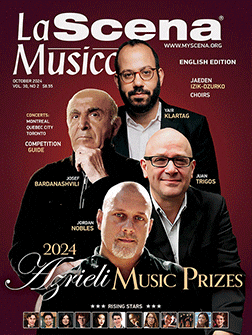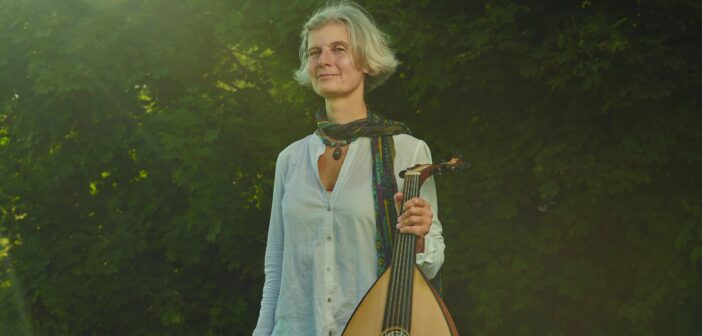
This page is also available in / Cette page est également disponible en:
![]() Francais (French)
Francais (French)
Ancient stories, attributed to lesser-known figures, are sometimes strikingly modern. This is the case of St. Marina, known as Marina the Monk, a woman who devoted her life to God despite her life’s tribulations and the prejudice she endured.
After her mother’s death, Marina’s father decided to disguise her as a boy and take her to the Qannoubine Monastery in Lebanon, reserved for men. There, she became known as “Brother Marin,” and her sex was only discovered by the community after her death. Her life was deeply marked by a false accusation of rape involving the daughter of an innkeeper. Choosing to hide her identity, Marina accepted the accusation and raised the child born from this forced union alone and in shame.
This subject resonated with composer Katia Makdissi-Warren, not only because of the issue of women’s rights and status in society but because it had been ingrained in her for a long time. “It all started with Marie-Annick Béliveau, an extraordinary contemporary music singer and artistic director of Chants Libres,” she says. “When she approached me about an opera project, I turned to my Maronite sources (Syrian Christian in origin, Ed.). My mother is Maronite, and I grew up in that culture. I found a solo theme for Marie-Annick – the one for St. Marina.”
Musically speaking, Katia reconnected with her roots. “While studying Syriac music with Father Louis Hage, who had himself gone to study this music in villages across the region, I often heard about St. Ephrem. As I delved into his story, he appeared to me as a very modern figure, even by today’s standards. He had founded a women’s choir to sing in church, and he incorporated instruments, even though they were later banned. When you read his texts, you also find a very nature-centred philosophy. That resonates deeply with me. Whether you are religious or not, these topics connect with today’s world.”
Moreover, the composer notes that St. Marina lived in the 5th century, around 50 years after the death of St. Ephrem. This historical fact inevitably influenced her artistic choices. “In the Maronite liturgy, some texts date back to that time. So, we can assume that Marina was singing chants very similar to those of St. Ephrem’s era. I wanted to explore this connection in my work, which in this context is heavily influenced by Maronite music. That being said, given the privilege I have of working with extraordinary musicians from all cultures, stylistic fusion inevitably becomes part of my musical language.”

Marie-Annick Béliveau. Photo: Laurent Guérin
To create an immersive experience, Béliveau had the idea of presenting the opera at the Satosphere of the Society for Arts and Technology. She also thought about spatializing the scenes all around under the dome, while Makdissi-Warren considered the spatialization of the instruments and the music. “The sound will travel a lot around the audience. Even though we are a small group, the musicians will move around quite a bit,” she says. “There will be a ney player (Persian flute), Marie-Hélène Breault on flute, Bertil Schulrabe on percussion, Pamela Reimer on piano, and a three-member bass choir. The singers will play percussion from the four corners of the room, thus creating more immersive soundscapes.”
Makdissi-Warren intends to involve the audience vocally in the opera. “We will stay in a more acoustic world, rather than electronic. There will also be projections created by Charlie Poirier-Bouthilette,” she notes. While she has already composed works with spatial elements for museums or installations, in terms of opera—this will be her first.
Translation: Viktor Lazarov
Sainte Marine. Coproduction by Chants libres and Oktoecho. From Nov. 9 to 11 at the Satosphere of the Society for Arts and Technology. www.chantslibres.org
This page is also available in / Cette page est également disponible en:
![]() Francais (French)
Francais (French)















